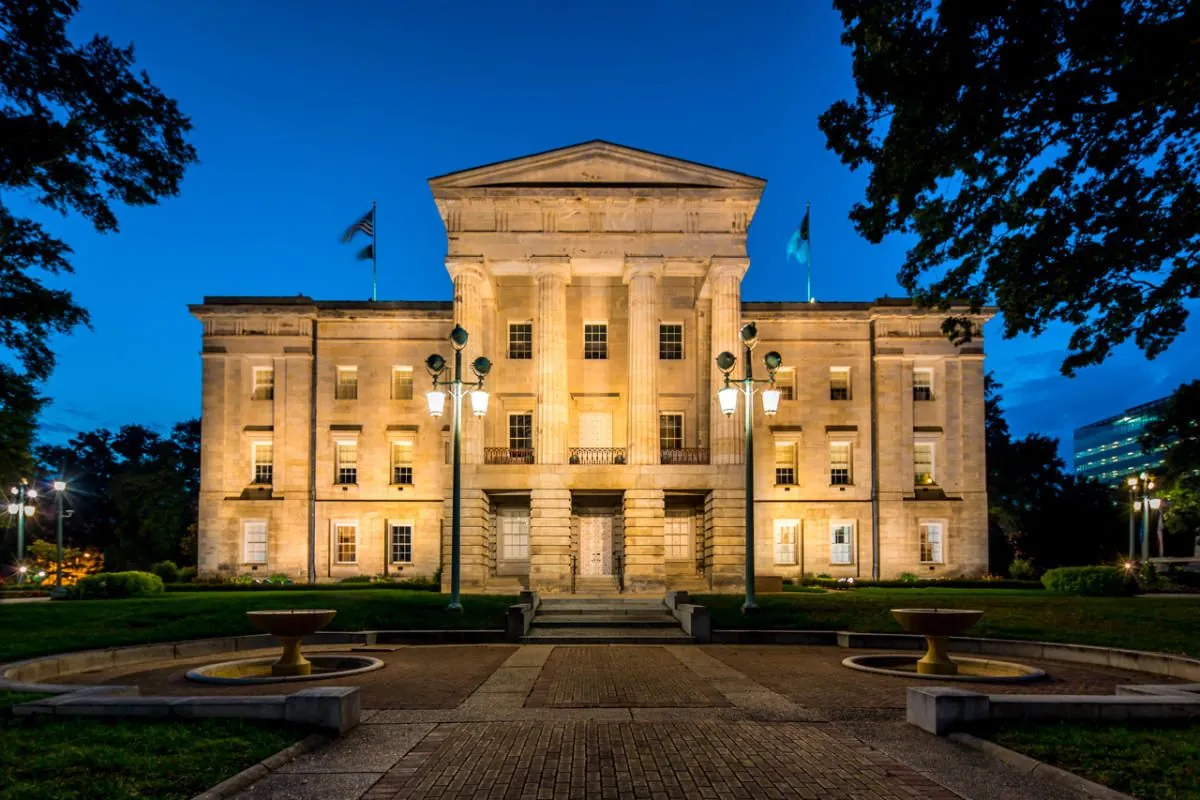In a significant legislative move, North Carolina's Republican-controlled General Assembly has approved a supplemental spending bill with far-reaching implications for education and immigration policies. The measure, passed on Wednesday, September 4, 2024, aims to eliminate the waitlist for private school vouchers and mandates county sheriffs to cooperate with federal immigration authorities.
The bill's passage marks a crucial moment in North Carolina's political landscape, reflecting the state's complex history and evolving demographics. As the 12th state to join the Union in 1789, North Carolina has long been a battleground for policy debates, with its General Assembly being the oldest legislature in the United States.
The centerpiece of the legislation is a substantial increase in funding for the Opportunity Scholarship program. The bill allocates an additional $463.5 million over two years to support private school vouchers. This expansion follows the 2023 decision to remove income limits for program eligibility, which led to a surge in applications and a waitlist of approximately 55,000 children.
Proponents argue that this move will provide greater educational choice for families across the state. However, critics, including Governor Roy Cooper and other Democrats, contend that the expanded program could negatively impact public schools, particularly those serving low-income communities.
The legislation also addresses immigration enforcement, requiring sheriffs to comply with U.S. Immigration and Customs Enforcement (ICE) detainers for certain inmates. This provision has sparked debate about local law enforcement's role in federal immigration matters and its potential impact on community relations.
Representative Destin Hall, a key advocate for the immigration measures, stated:
"When sheriffs say, 'Well I'm just not going to cooperate with ICE,' that doesn't solve any problem at all. [It] puts the folks who are there in that community at risk."
Opponents, including advocacy groups like El Pueblo, argue that the bill could lead to increased fear and division within immigrant communities.
The political implications of this bill are significant. While Governor Cooper is expected to veto the measure, the Republican party now holds narrow veto-proof majorities in both chambers of the legislature. This shift in power dynamics could lead to a potential veto override, possibly as soon as the scheduled session in mid-November 2024.
As North Carolina navigates these policy changes, it's worth noting the state's rich history and diverse landscape. From the Wright brothers' first flight in Kitty Hawk to the innovative Research Triangle Park, North Carolina has been a site of progress and debate. The state's varied geography, from the Appalachian Mountains to the Atlantic coast, mirrors its complex political terrain.
This legislative development unfolds against the backdrop of North Carolina's evolving economy and demographics. With a population of approximately 10.7 million as of 2023, the state continues to grapple with balancing tradition and change, much like its diverse agricultural output, which ranges from sweet potatoes to Christmas trees.
As the Tar Heel State moves forward, the outcome of this bill and its potential implementation will likely shape the state's approach to education and immigration for years to come, reflecting the ongoing dialogue between its historical roots and future aspirations.
